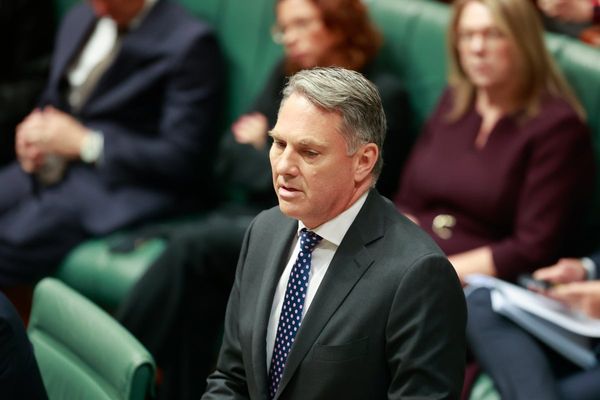Keir Starmer has urged Israel to obey international law but refused to back calls for a ceasefire, as he seeks to heal increasingly bitter divisions within his own party over the conflict in Gaza.
The Labour leader spelled out his position on the crisis in detail on Tuesday after days of criticism from many of his own members and MPs that he appeared oblivious to the suffering of Palestinians.
In an attempt to reassure MPs and councillors who have threatened to quit the party over the issue, Starmer gave his most direct criticism yet of the Israeli bombardment, expressing “concern” over some of its actions and urging the Israeli government to allow fuel to cross into Gaza.
But he rejected calls made by some of his most high-profile colleagues for an immediate ceasefire in the region, saying such a move would make it harder to rescue Israeli hostages still being held by Hamas.
“While I understand calls for a ceasefire at this stage, I do not believe that it is the correct position now,” he told an audience at the Chatham House foreign affairs thinktank in London.
He said a ceasefire would “freeze the conflict”, allowing Hamas to launch attacks against Israel again in the future. “Hamas would be emboldened and start preparing for future violence immediately,” he said, adding that he wanted instead to see a temporary “humanitarian pause” in fighting.
The comments were a direct rejection of calls for a ceasefire made by, among others, the Scottish Labour leader, Anas Sarwar, the Labour mayor of London, Sadiq Khan, and the Labour mayor of Greater Manchester, Andy Burnham.
At least 13 shadow ministers – including Alex Cunningham, Afzal Khan, Rushanara Ali, Andy Slaughter, Jess Phillips and Florence Eshalomi – have also joined calls for an end to the fighting.
Starmer also refused to support the judgment of the UN among others that war crimes may have been committed during the bombardment of Gaza.
“Israel has to act in accordance with the law,” he said. But he added: “I think it’s unwise for politicians to stand on stages like this or to sit in television studios and pronounce day by day which acts may or may not be lawful under international law.”
His comments were criticised by Sacha Deshmukh, the chief executive of Amnesty International UK, who said: “In failing to call for an immediate ceasefire, Keir Starmer is not showing the clear and principled leadership that this decades-old crisis needs.”
He said it was “deeply disappointing” that Starmer “did not use this moment to be clear that under his leadership the UK would be consistent and rigorous in supporting international law”.
The Labour leader did go further than he had recently in his criticism of Israel’s actions since the Hamas attack of 7 October.
Starmer said the recent 36-hour communications blackout that led to people in Gaza being unable to call for an ambulance after being hit by rocket attacks was a “concern”. He said those who had been forced to flee their homes should receive “crystal clear guarantees they will be able to return”.
He called it unacceptable that the siege conditions around Gaza had not been lifted, and he urged Israel to allow fuel into the strip, something Israel is refusing to do, instead accusing Hamas of hoarding supplies.
As Starmer left the venue of his speech, his vehicle was surrounded by protesters who demanded an immediate ceasefire in Gaza. Police officers pushed them aside but the protesters ran at the car and drummed on the window.
Since the war broke out earlier this month, Starmer has struggled to maintain discipline within his party over the issue. Tensions started after Starmer gave an interview with LBC during the Labour party conference in which he appeared to suggest Israel was justified in cutting off electricity and water to Gaza.
Since then, multiple members of the shadow cabinet have urged him to show more compassion to the suffering of ordinary Palestinians, several Labour councillors have quit the party in protest and the party’s most well-known devolved leaders have broken ranks to call for a ceasefire.
On Monday the Labour MP Andy McDonald was suspended by the party for using the phrase “between the river and the sea” during a pro-Palestinian protest – a phrase that some see as calling for the destruction of Israel.
Starmer on Tuesday refused to comment on McDonald’s case but urged MPs “to be extremely careful about the language that we use”.
So far the Labour leader has shied away from punishing shadow cabinet ministers who have called for a ceasefire despite that not being the official party position.
He insisted on Tuesday that the shadow cabinet was still bound by collective responsibility. But he added that he would not necessarily take a hard line against those who breached it on this issue.
“It’s my job to ensure we do have collective responsibility,” he said. “I will do it sensitively and engaging with my frontbenches.”







